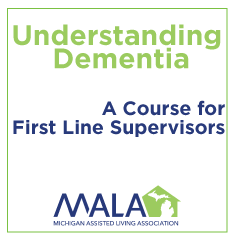Don’t know your username and password? We will be happy to provide it to you. Simply email us at mala@miassistedliving.org or call 734-525-0831.
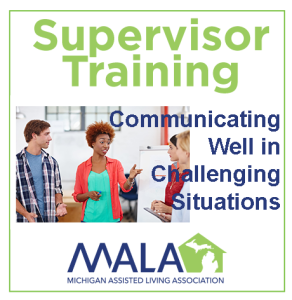
Communicating Well in Challenging Situations
As a First-Line Supervisor, your words and actions set the tone for your team. Clear and timely communication is essential in the complex and sensitive environments of assisted living and other community-based settings. Effective communication builds trust, supports teamwork, and contributes to high-quality care. Whether you’re leading the organization, supervising staff, or providing direct support, everyone plays a vital role in fostering strong communication.
In this course, Donna Hondorp, Principal Strategist at DH Communications, will share her insights into how strong communication can improve team dynamics and daily work life, especially during unexpected challenges
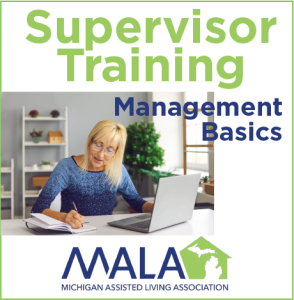
Management Basics
Newly hired supervisors, newly promoted individuals, current supervisors, and persons on track for career advancement benefit from professional development that follows a structured path. First-Line Supervisors often have little management experience. As a result, they tend to emulate their last supervisor or utilize other life experiences that may not align well with the requirements of supervising staff in an Assisted Living or other Community-Based setting. This course intends to provide a practical guide to managing staff, beginning with outlining the areas where supervisory training is needed. A properly trained First-Line Supervisor can improve care outcomes and lower expenses by decreasing staff turnover.
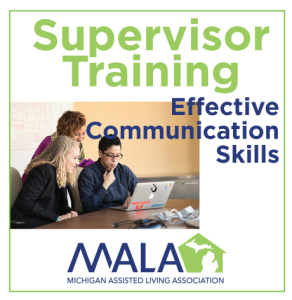
Communication Skill Development
First-Line Supervisors need to communicate with stakeholders regularly. Supervisors are consistently gathering and sharing information. The benefits of communicating effectively will be examined. A framework of proactive communication strategies will be reviewed to manage efficient and effective communications with key stakeholders. First-line supervisors will develop the confidence to manage challenging communications as well as the skills to convey information to their supervisor. Good communication is the key to being a successful First-Line Supervisor.
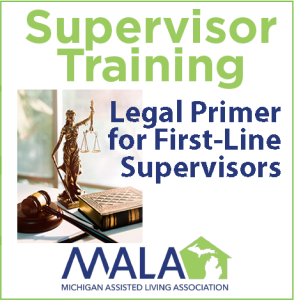
Legal Primer for First-Line Supervisors
This course offers an accessible introduction to the legal aspects of supervising direct care staff, specifically designed for individuals without formal legal training. Participants will explore key legal terms, regulatory agencies, and funding sources in Assisted Living and other community-based settings. The course emphasizes the importance of integrity, consistency, and professional conduct while highlighting risks such as favoritism, discrimination, and misconduct. Topics also include protected employment classes, preliminary workplace investigations, and effective documentation practices.
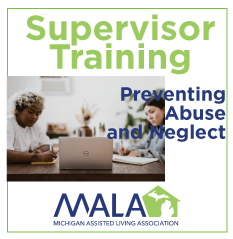
Preventing Abuse and Neglect
Reducing the incidents of abuse and neglect requires regular work tending to the organization’s culture. The First-Line Supervisor position is arguably one of the most influential in the organization’s culture. This work needs to occur daily, not just when an incident of abuse or neglect occurs. When a Care Philosophy is in place, it is easier to identify the red flags signaling the risk of abuse and neglect. Being able to recognize and analyze the red flags can lower the likelihood of an abuse or neglect incident.
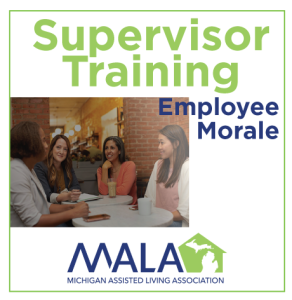
Employee Morale
Good employee morale is the very essence of a proactive management approach. First-line supervisors will learn to identify what actions they can take to sustain morale. Specific examples of interacting with staff proactively will be explored. A shift structure to ensure care objectives are met in the most efficient manner will be presented. Detailed plans for running a morale-lifting and educational staff meeting will be discussed.

